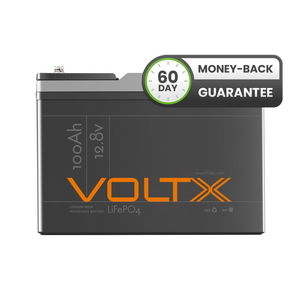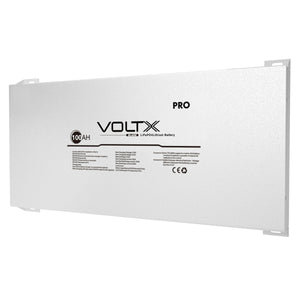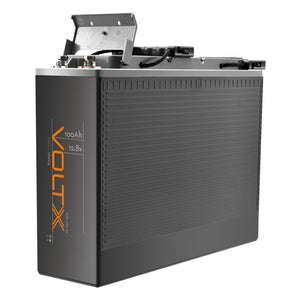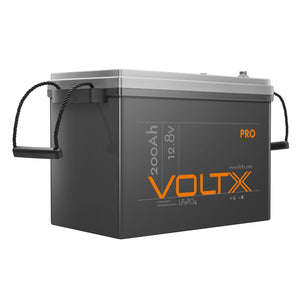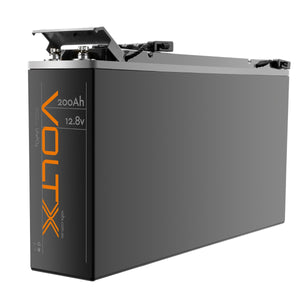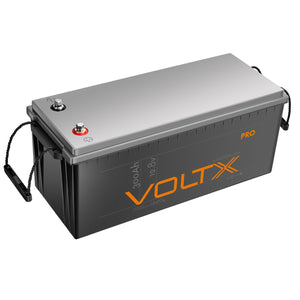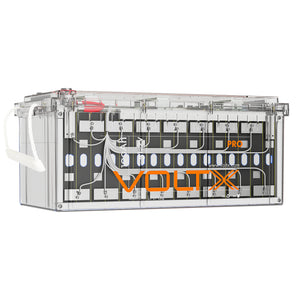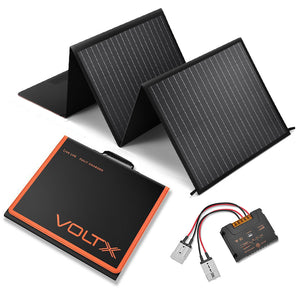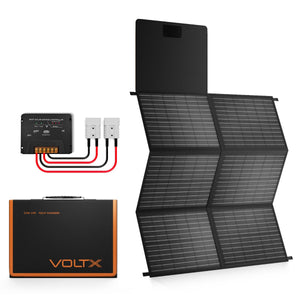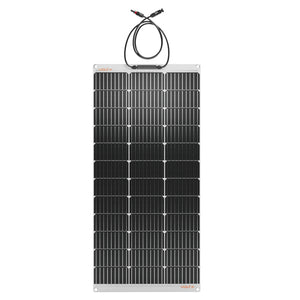Solar panels and battery packs are among the most effective ways of powering your campsite, especially when paired together. However, you can’t just use any battery you currently have and pair it with your solar panels. They need to be compatible with each other too, hence the emergence of solar batteries.
What Is a Solar Battery?
A solar battery's main function is to store energy generated from solar panels for later use. This storage ability is dependent on their capacity. Once your battery is fully topped up, the system will send the electricity back to your grid and when it gets depleted, the charging process will resume by drawing electricity from the panels once again. Solar power battery packs can also be paired with an inverter if you want to run larger, 240V appliances.
When it comes to household settings, your solar batteries can be charged from the grid and serve solely as storage for your solar power system. In the event that your solar panels are not generating any electricity, your solar battery's purpose will be to release its stored energy for you to utilise. For off-grid camping, these batteries can supply 100% of the energy you need as long as they are properly sized and charged by solar panels. Having a solar camping battery is also a good idea for backup in case the weather conditions are not that suitable for your panels to perform at full efficiency.
Solar batteries also have different types under them, with most of them being deep-cycle batteries. It could be a lead-acid, which is known for its high discharge rate and low energy. They've been in the camping scene for years already and although they have their benefits, their overall efficiency has already been surpassed by newer, modern batteries. A lead-acid battery can also be either flooded or valve-regulated lead-acid (VRLA) batteries. Another type is lithium-ion batteries. These are the most popular battery used in solar systems due to their low self-discharge rate, longer lifespan, and maintenance-free operation.
Lastly, solar batteries can also come in the form of lithium iron phosphate batteries or LiFEPO4. They're also establishing a name lately and have even been dubbed as the safest battery type. LiFEPO4 batteries are a bit pricier but can last for up to a decade, plus, they're packed with more power yet significantly more compact than their counterparts. They are also known for having a built-in battery management system, which prevents common battery issues for minimal maintenance and added safety during use.
Currently, the most prominent solar batteries in the market are the Tesla Powerwall and LG RESU. These come in larger sizes and are usually used in homes, but there are smaller batteries available for camping as well, such as the ones from Outbax.
Can Solar Panels Charge Lithium Batteries?
Charging a LiFEPO4 with solar panels is possible. The risk of damage is there because solar batteries need to be charged in three stages while lithium batteries are charged in two phases only. This can be countered with a solar charge controller though. This is the only thing you will need-no special chargers or any other accessories. A solar charge controller's job is to regulate the energy generated by your solar panels that flow into your battery bank. Keep in mind though, that there are two kinds of regulators-the Pulse Width Modulation (PWM) controllers and Maximum Power Point Tracking (MPPT) controllers. MPPTs are more expensive but they're highly recommended compared to PWM regulators in terms of charging efficiency, so better go with this one if you can afford it.
How To Choose Your Solar Battery?
Before purchasing a solar battery, there are some specific factors you need to look at to make sure you buy the best one and make the most out of it.
Capacity: The higher the energy density your battery has, the more it can hold capacity in a compact space. Lithium batteries are best in this category, as they can power your entire campsite with a single or two battery banks whereas lead-acid batteries would need eight.
Discharge rate: Since you're going somewhere without mains power nearby, it is crucial that your battery can last throughout your entire trip. Usually, batteries' depth of discharge (DoD) fall at 50%, but there are some that can go up to 80% discharge level and still give you reliable power like lithium deep-cycle batteries.
Lifespan and Warranty: These two go hand-in-hand all the time. Good battery life should last up to at least 2,000 cycles. Of course, your battery's life is dependent on how you handle and maintain it too. As for the warranty, a minimum of 10 years is recommended, because this is a clear indication of your solar battery's reliability.
Efficiency: Make sure your batteries have a high conversion rate as these would mean fewer solar panels to install. Also, take note of its charge rate as well, since you need something that can be easily topped up, especially if you camp out often.
More from Outbax
Now that you're familiar with solar batteries, it's time to pick one. Check out our portable battery range and you just might find the best solar power battery for you there. Our solar battery prices are also lower here, yet the quality remains top-notch. If you're planning to set up an entire solar system for your RV, we have solar panel accessories different kinds of solar panels here too including flexible solar panels and folding solar panels.
Frequently Asked Questions
- What Is a Solar Battery?
- Can Solar Panels Charge Lithium Batteries?
- How To Choose Your Solar Battery?
